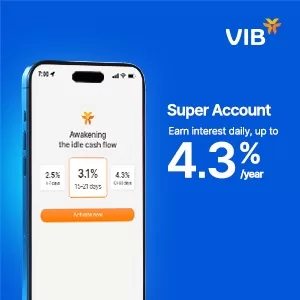Oops, You’re Public: OpenAI’s ChatGPT Feature Yanked Over Privacy Slip

- Shared ChatGPT chats were to be discovered, but after an angry reaction from users, OpenAI withdrew the discoverability feature.
- This change happened at the very moment when there are increased concerns about hosting and exposing user-generated content on any given platform.
In July 2025, OpenAI introduced a “discoverability” setting for ChatGPT. When a user generated a shareable link for a certain conversation, an option was presented for the link, in effect, to be publicly indexed by search engines such as Google. This entry was then allowed to appear in the search results.
The idea was to allow other users to be able to find useful ChatGPT content voluntarily shared by other people. It was not designed as a tool to search one’s private chat history within the app. But the implications were misunderstood by many users.
Shortly after launch, reports surfaced showing that some conversations—containing personal information or sensitive content—were showing up on Google. While the setting required manual activation, users said the interface and language did not clearly explain what “discoverable” meant in practice.
How OpenAI Responded
OpenAI acted quickly. The company disabled the discoverability toggle and confirmed that the feature had been a short-term experiment. OpenAI has not publicly identified a Chief Information Security Officer issuing a statement about a discoverability feature, but the company has addressed privacy concerns in other contexts. He said the tool introduced “too many opportunities for folks to accidentally share things they didn’t intend to.”
There is currently no announced plan to bring the feature back. OpenAI has committed to working on removing indexed pages from search engines and reviewing its internal review process.
What It Means for Users
Many users assumed that sharing a link to a chat would keep the content limited to those with the link. The discoverability toggle changed that. Upon activation, it enabled Google and other search engines to find and list the chat, thereby rendering it publicly accessible.
Although the toggle was opt-in, critics argued that the interface made it too easy for users to overlook the consequences of their actions. This initiated another discussion: users deserve clearer explanations and a design that is more transparent when their data is being exposed.
ChatGPT had over 100 million weekly active users as of 2024. The platform recorded roughly 1.8 billion monthly visits in 2023. Even if just a small fraction of users turned an application on for discoverability without sufficiently understanding what they were doing, the exposure may reach thousands.
The Feedback Loop and Transparency Gaps
The response to the feature was almost immediate. Users posted screenshots of their own conversations appearing on Google. Security analysts and privacy advocates called for OpenAI to de-index the exposed content. In response, OpenAI acknowledged that user feedback had highlighted a key failure in communication.
OpenAI said that visibility controls weren’t explained well enough and that even experimental features must be tested for their clarity, not just functionality.
This has become a growing theme across digital tools: it’s not just what the software does, but how users experience and understand it.
What You Should Check Right Now
If you’ve ever shared a ChatGPT conversation via link, especially recently, here are some steps you can take:
- Check if you enabled “discoverability” when sharing.
- Search your name or topic from your shared chat to see if it appears online.
- Delete any shareable links that you no longer wish to be public.
Also, remember: OpenAI stores chat data unless you disable history or opt out of training.
To control this:
- Visit your settings to disable training on your data.
- Manually delete previous chats if they contain sensitive content.
These controls are available in ChatGPT but are not always clearly presented. Staying informed is your best tool.
Tech Industry Context
This isn’t the first instance of digital privacy concerns making headlines. Several other platforms have faced similar challenges:
- Google paused some location-based features in Bard AI following privacy complaints.
- Meta’s Portal home devices were criticised for unclear video recording practices.
- Microsoft Copilot’s integration with Teams prompted questions about employee data visibility.
The lesson here is shared: user trust depends on informed consent, not just checkboxes and toggles.
Current Status and What’s Next
The discoverability feature is no longer active. Shared chat links that were marked as discoverable will no longer be indexed moving forward. OpenAI is working with search engines to de-index existing links that were exposed.
There is no search bar or feature within ChatGPT that lets users look through their own private chat history beyond basic scrolling. While some users have requested such functionality, the removed feature was unrelated to that.
Any future attempt to introduce discoverability or sharing tools will likely require stronger privacy guardrails alongside more transparent opt-in flows. OpenAI has not announced a putative timeline or new version.
Practical Takeaways
- Discoverability settings should be explained clearly and never set by default.
- An opt-in design must include warnings in plain language and be visible to the user.
- Users must have the ability to track any content they share and delete it easily.
- Privacy engineering should be a factor considered at the rollout, not something considered afterwards.
OpenAI’s swift removal of the tool showed its activeness toward dealing with an issue; yet, it also showcased that releasing a feature without first fully taking into account how users will understand it presents huge risks.
Online user privacy is not merely an act of data protection – it is essentially design, language, and clarity.











































